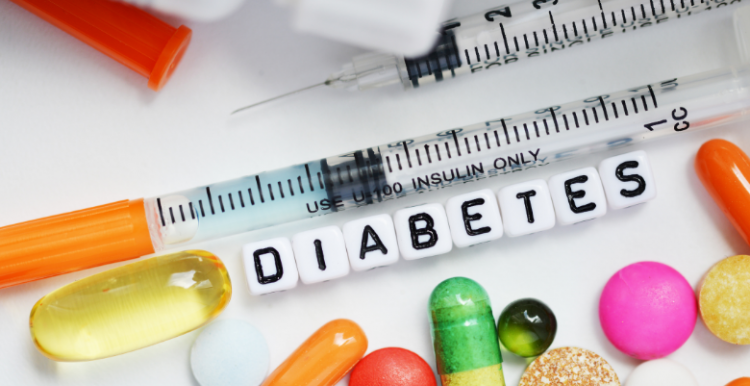Know Diabetes, fight diabetes

Its impact and complications can be devastating, causing blindness, amputations, even early death.
Despite these huge numbers, fewer than two in five people think that they or their close family are likely to get diabetes. They aren't concerned about diabetes, and they don't understand or know what it is.
Leading charity Diabetes UK is aiming to change this, to make people sit up and take notice during Diabetes Week, which is taking place from Sunday 11 June to Saturday 17 June. The charity’s theme for Diabetes Week 2017, ‘Know Diabetes, Fight Diabetes’, reflects this call for change, asking others to join the campaign to make it happen.
Know diabetes, fight diabetes
Urges leading charity ahead of Diabetes Week 2017
Make no mistake, diabetes is a serious condition, but there are things you can do to help manage it and avoid developing serious complications.
The charity is bringing the ‘Know diabetes, fight diabetes’ theme to life by encouraging people with the condition to get in touch and share their knowledge and experience, to help and inspire others. What have you learned about diabetes which has made a difference for you? Help Diabetes UK fight for better care, more research and less stigma.
Get in touch here to find out more.
Throughout the week, there will be a range of events and initiatives organised by Diabetes UK which will raise awareness of this condition.
Know diabetes
Getting to know and understand diabetes better is central to the work of Diabetes UK, from research discoveries to talking to healthcare professionals and people with diabetes, all aspects of which will be explored during Diabetes Week.
In a nutshell, diabetes means the amount of glucose (sugar) in your blood is too high because your body can’t use it properly for energy. This happens because the pancreas either doesn’t produce any insulin, enough insulin, or the insulin it does produce doesn’t work properly.
There are two main types of diabetes: Type 1 and Type 2. They’re different conditions, caused by different things.
About 10 per cent of people with diabetes have Type 1, which means they can’t produce insulin. Type 1 is not to do with being overweight and it’s not preventable.
People with Type 2 diabetes don’t produce enough insulin or the insulin they produce doesn’t work properly. One of the biggest risk factors for Type 2 is being overweight; age, ethnicity and family history can also have an impact.
Following a healthy diet and lifestyle is really important, as is taking appropriate medications. This will help to manage your blood sugar, blood fat and blood pressure levels, which will reduce your risk of diabetes complications.
Getting the right health checks is vital. They show you how your diabetes is progressing, help to spot signs of complications as early as possible and identify changes to help prevent complications. If you are living with diabetes, do have a look at Diabetes UK’s 15 Healthcare essentials to see you are getting the checks and tests which can help.
To get involved and find out more about diabetes during Diabetes Week, you can:
- Find out what your risk of developing Type 2 Diabetes is. It takes less than three minutes to use Diabetes UK’s popular online questionnaire, Know Your Risk.
- Sign up for a free Diabetes UK education course to polish up your knowledge
- Become a Diabetes UK volunteer and connect with others living with the condition
- Engage with us on Twitter during the week, using the hashtag #diabetesweek
Fight diabetes
Diabetes UK is fighting to achieve change – from variation in care and support for people with diabetes, to challenging the stigma and discrimination caused by lack of understanding of the condition.
During Diabetes Week, you can help Diabetes UK fight the condition in lots of ways:
- Sign up for the 1 Million Step Challenge and commit to raising funds over three months
- Campaign to fight diabetes by joining Diabetes Voices to create positive change for people with and at risk of diabetes
- Play a vital role by taking part in a diabetes trial or study
For further media information:
Helen Riley on 0203 757 7783


